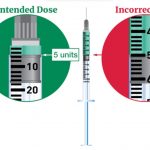
Millions of Americans use the opioid-like herbal supplement known as kratom, but evidence of its dangers continue to mount. The U.S. Food and Drug Administration has issued another alert for consumers to stay away from one brand of kratom in particular, OPMS Black Liquid Kratom. “The FDA recently received an adverse event report of a person who died after using OPMS Black Liquid Kratom,” the agency noted. “This is one of many reports of serious adverse events individuals have reported” after using the supplement, the FDA added. Kratom is an herbal supplement derived from the dried leaves of a tropical evergreen tree in the coffee family. A chemical called mitragynine, found in kratom, tweaks some of the same brain receptors that respond to opioids. However, overdoses of mitragynine are toxic to the liver and can prove fatal. Kratom has been used for centuries in its native Southeast Asia to produce increased energy and relaxation, according to the U.S. National Institute on Drug Abuse. The drug is largely unregulated: Anyone can buy kratom online, and it can be found in convenience stores, gas stations and vape shops. Some bars serving botanical drinks offer kratom tea. About 1.7 million people 12 and older used kratom in the United States in 2021, according to the National Survey on Drug Use. The new alert from the FDA noted that… read on > read on >

















-150x150.jpeg)
-150x150.jpg)





-300x169.jpg)













